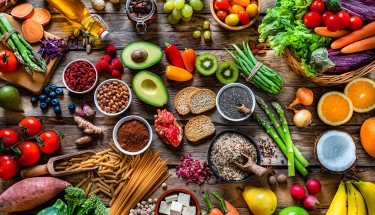Foods for Colitis Symptoms: What to Eat and What to Avoid
Managing ulcerative colitis symptoms often starts with your plate. Knowing which foods to eat during flare-ups, and which to avoid, can help reduce discomfort and support gut health. This guide explains practical meal strategies, anti-inflammatory foods to include, and tips for creating a digestive-friendly diet—no matter where you are in your colitis journey.

Living with colitis means navigating daily challenges around food choices, but the right dietary approach can significantly reduce symptoms and improve quality of life. Understanding which foods support healing and which trigger flares empowers individuals to take control of their digestive health through informed nutrition decisions.
Understanding Colitis and Its Dietary Impact
Colitis, a form of inflammatory bowel disease, causes chronic inflammation in the colon’s lining, leading to painful symptoms including abdominal cramping, diarrhea, fatigue, and unpredictable flare-ups. While medications remain essential for treatment, dietary modifications serve as a powerful complementary tool for symptom management and long-term wellness.
Research demonstrates that anti-inflammatory eating patterns can reduce intestinal irritation, support medication effectiveness, and promote healing of damaged tissue. Working with healthcare professionals, particularly gastroenterologists and registered dietitians specializing in IBD, ensures personalized dietary strategies that address individual triggers and nutritional needs.
Key Benefits of Strategic Dietary Changes
Thoughtful modifications to eating patterns deliver benefits beyond basic symptom relief. Many individuals experience fewer flare-ups, improved energy levels, and enhanced digestive comfort when incorporating gut-friendly foods into their daily routine.
Low-fiber and low-residue approaches during active inflammation help reduce digestive workload, while FODMAP elimination protocols can identify specific carbohydrate triggers that contribute to bloating, gas, and abdominal pain. These evidence-based strategies support microbiome balance and overall gastrointestinal wellness.
Optimal Foods During Active Flares
When colitis symptoms intensify, focusing on easily digestible, low-residue foods provides the best foundation for recovery. Breakfast options should include scrambled eggs with minimal seasoning, white toast without seeds, ripe bananas, and plain oatmeal prepared with water rather than milk.
Additional soothing choices encompass white rice, unsweetened applesauce, well-cooked carrots, clear bone broth, and plain yogurt for those who tolerate dairy products. Gentle soups featuring thoroughly cooked vegetables and lean proteins like chicken or fish typically prove well-tolerated during symptomatic periods.
Maintaining adequate hydration becomes particularly crucial during flares, as diarrhea increases fluid loss. Sipping water throughout the day, consuming oral rehydration solutions, or enjoying caffeine-free herbal teas helps prevent dehydration complications.
Foods to Eliminate During Symptom Flares
Certain food categories consistently aggravate colitis symptoms and should be limited or avoided during active inflammation. High-fiber options including raw vegetables, legumes, popcorn, nuts, and seeds can increase intestinal irritation and worsen diarrhea.
Spicy foods, fatty or fried items, caffeine, artificial sweeteners, and carbonated beverages frequently trigger discomfort in sensitive individuals. Alcohol consumption can worsen inflammation and interfere with healing processes, making it particularly important to limit intake during flare-ups.
Red meat and certain dairy products may also prove problematic for some people. Maintaining a detailed food journal helps identify personal trigger patterns and refine eating strategies over time.
Anti-Inflammatory Foods for Long-Term Management
Between flares, incorporating anti-inflammatory foods supports ongoing digestive health and may help prevent future symptom episodes. Omega-3 rich fish like salmon, sardines, and mackerel provide beneficial fatty acids that combat inflammation throughout the body.
Cooked vegetables such as carrots, squash, and sweet potatoes offer essential nutrients while remaining gentle on the digestive system. Probiotic-rich foods like kefir, yogurt with live cultures, and fermented vegetables can support healthy gut bacteria when tolerated.
Lean proteins including poultry, fish, and eggs provide necessary amino acids for tissue repair without adding excessive fiber or fat that might trigger symptoms.
Building a Personalized Meal Plan
Creating sustainable eating patterns requires careful attention to individual tolerance levels and symptom patterns. Start with a foundation of well-tolerated foods and gradually introduce new options during stable periods, monitoring for any adverse reactions.
Meal timing also plays a crucial role in symptom management. Smaller, more frequent meals often prove easier to digest than large portions, reducing strain on the intestinal system. Eating slowly and chewing thoroughly aids digestion and nutrient absorption.
Working with a registered dietitian experienced in IBD management helps ensure nutritional adequacy while avoiding trigger foods. Professional guidance becomes particularly valuable for identifying hidden ingredients and planning balanced meals that meet all nutrient requirements.
Hydration and Supplement Considerations
Proper hydration supports every aspect of digestive health and becomes especially important for individuals managing colitis. Beyond water, electrolyte-rich beverages help replace minerals lost through diarrhea during flare periods.
Certain supplements may support digestive wellness, though consultation with healthcare providers remains essential before adding any new products. Vitamin D, B12, and iron deficiencies commonly occur in IBD patients and may require targeted supplementation under medical supervision.
Probiotic supplements showing promise in research include specific strains that support intestinal barrier function and reduce inflammatory markers, though individual responses vary significantly.
Professional Support and Treatment Integration
Managing colitis effectively requires comprehensive care that extends beyond dietary modifications alone. Maintaining regular communication with gastroenterologists ensures access to evolving treatment options, including participation in clinical trials exploring innovative therapies and biologic medications.
Many clinical trials provide participant support including covered treatment costs and access to cutting-edge therapeutic approaches. Discussing eligibility criteria and insurance coverage options with healthcare teams opens doors to potentially beneficial treatment opportunities.
Financial assistance programs through hospitals, pharmaceutical companies, and nonprofit organizations can help manage medication expenses when needed. Always seek immediate medical attention during severe flare-ups, as complications like dehydration or significant inflammation require prompt professional intervention.







